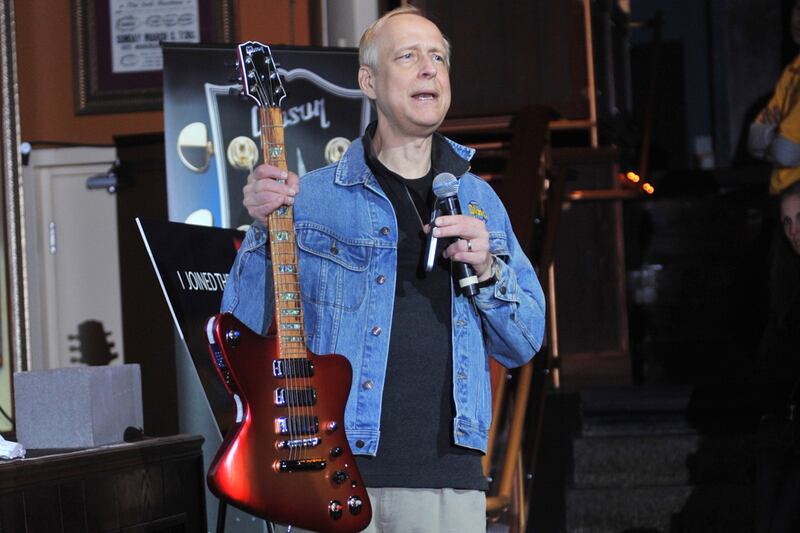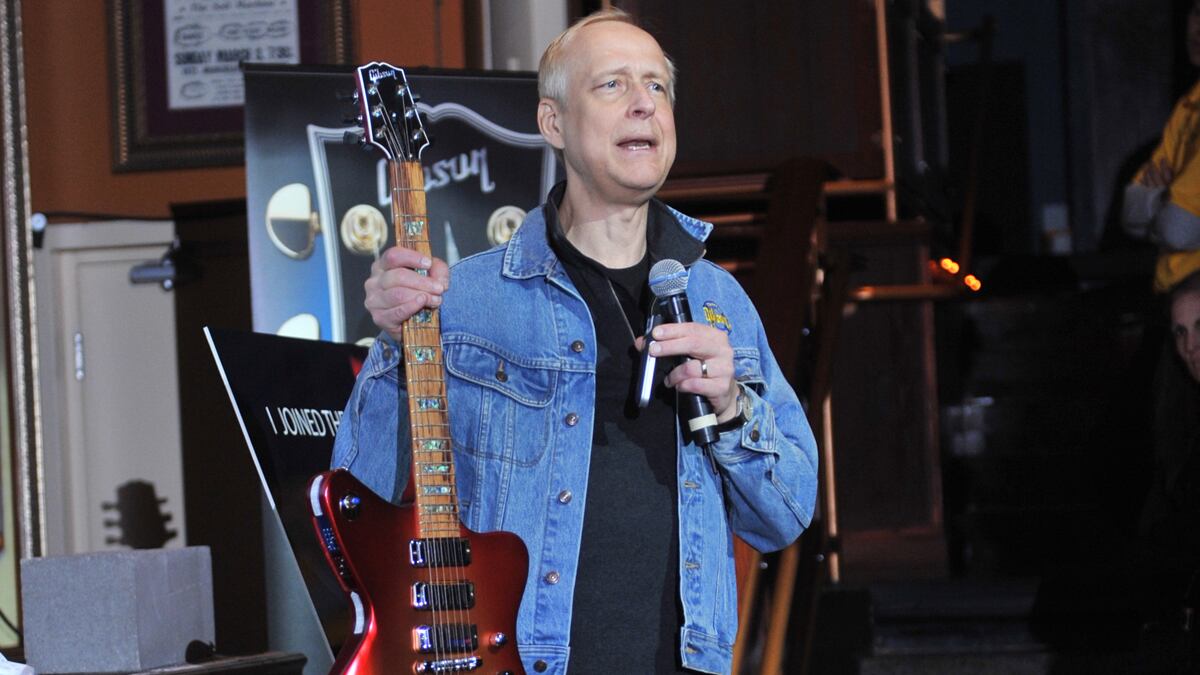A few minutes before President Obama strode to the lectern Thursday night for his jobs speech to a joint session of Congress, conservative pundit and Tea Party firebrand Dana Loesch used her Twitter account to take note of a Tennessee congresswoman’s plus-one for the address.
“Love that Marsha Blackburn invited Henry Juszkiewicz,” Loesch excitedly told her more than 22,000 followers, referring to the Nashville Republican’s guest, who’s the CEO of Gibson Guitar Corp.
The invite was a definite nose-thumbing at the president, whose administration inadvertently helped turn Gibson, currently under investigation for the kind of wood it uses, into a rabble-rousing battle cry for the Tea Party and conservative media establishment.
The strange journey of the Nashville-based guitar maker’s CEO—from a typical day at the office to a barrage of media interviews to throwing red meat at right-wing personalities like Glenn Beck and ultimately flying to meet House Speaker John Boehner prior to Obama’s speech—began without warning at about 8:45 a.m. on Wednesday, Aug. 24.
That’s when armed federal agents executed four search warrants on Gibson facilities in Nashville and Memphis.
“It was a nightmare,” Juszkiewicz said in an interview a few days ago with Beck, himself a Gibson guitar owner.
Juszkiewicz said more than 20 armed agents appeared at multiple Gibson locations, closed them for the day, moved employees into parking lots, and began searching the production facilities.
Agents with the U.S. Fish and Wildlife Service, an agency within the Department of the Interior, left with several pallets of wood, electronic files, and guitars. At a press conference outside Gibson’s corporate headquarters a few days after the raid, Juszkiewicz told reporters that the value of inventory seized was about $1 million. He later revised that figure upward, to between $2 million and $3 million.
In a letter dated Thursday, leaders of the House Energy and Commerce Committee demanded answers about the Gibson raid from Attorney General Eric Holder, Interior Secretary Ken Salazar, and Fish and Wildlife Services Director Daniel Ashe.
“We are deeply troubled by the suggestion that if Gibson had the skilled work done in India, using the same wood, instead of here in America, then the importation would have been legal and the Department of Justice would not have carried out this heavy-handed enforcement action,” the House leaders wrote. “If this is true, it is hard to conclude anything other than the fact that your agencies and this Administration are actively pursuing regulatory and legal policies that discourage job growth in the United States and encourage shipping those very same jobs overseas, through the selective enforcement of laws enacted over one hundred years ago.”
Among the factors that have helped the episode snowball into a potent political symbol, at a time of intense national debate about the proper scope of government, are Juszkiewicz’s statements at the press conference—that his company was given no warning, that it was not told what it did wrong, and that it is essentially being bullied by what he described as an “out of control” federal government.
Juszkiewicz said he thinks the government believes that some of the wood Gibson is using to manufacture the company’s guitars is illegal.

“But everything is sealed,” he said. “They won’t tell us anything.”
“The federal bureaucracy is just out of hand,” he added. “And it seems to me there’s almost a class warfare, of companies versus people, rich versus poor, Republicans versus Democrats…and there’s just a lack of somebody that stands up and says, ‘I’m about everyone. I’m really about America and doing what’s good for the country and not fighting these little battles.’”
As of Thursday night, no charges had been filed against Gibson, which also was raided by federal agents in November 2009 over a shipment of ebony wood from Madagascar that the government believed had been illegally exported.
Federal officials have not commented directly about the recent raid. But Andrea Johnson, director of forest programs for the Environmental Investigation Agency in Washington, told National Public Radio that Gibson “made a decision in the end that they were going to source despite knowing that there was a ban on exports of ebony and rosewood…The intent here is to reduce illegal logging and send a signal to the markets that you’ve got to be asking questions and sourcing wood in a responsible way.”
Gibson believes the linchpin of the newest federal case being built is something called the Lacey Act, which holds that anyone bringing a product into the U.S. has to declare what it is with rigid specificity and also to comply with foreign laws.
Gibson’s take on the law—and Juszkiewicz reiterated it during his press conference—is that if the wood has been “finished” overseas—rather than the fingerboards and other components being finalized in the U.S. after the wood is shipped here—the wood is legal. In other words, in this case the company sees the government as promoting overseas jobs, inadvertently or not.
All of the Gibson plants have since reopened and are operational again. Juszkiewicz said Gibson’s lawyer and federal officials have exchanged at least one phone call since the raid.
But at some point between Juszkiewicz being barred from his office by armed agents who stood outside his door and Thursday, the chief executive and his company launched a full-throated opposition campaign using social media, interviews with right-wing outlets, and direct appeals to like-minded members of the public.
In its fight with Uncle Sam, Gibson decided to go to the mat, turning its set of circumstances into one more front in a much larger battleground.
The company is tweeting regularly about the incident, tagging the tweets with the hashtag #thiswillnotstand. User comments are pouring in to the company’s Facebook wall.
One recent user commenting in support of the company posted a picture of a guitar above the words, “Come and get it.” And that user urged other Facebook users who felt the same way to make the image their profile picture.
“You have to feel good about the support, and it sort of restores faith in America and the American people,” Juszkiewicz said after the press conference. “Faith was a little ragged with the process we were put under.”





